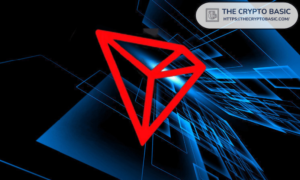ZNS Connect, a decentralized naming solution provider for Web3, has announced its launch on Sonic Labs mainnet. By going live on the mainnet of Sonic Labs, ZNS Connect targets to empower users with streamlined customization in the world of decentralized domains. The platform disclosed this milestone on its official social media account.
ZNS Connect live on @SonicLabs Mainnet🏎️💨
L.
❤️🔥We are thrilled to announce that we are now live on the @SonicLabs mainnet! It’s time to show us just how fast you really are.Mint your .speed domain now https://t.co/t6nJrnKJJX and showcase your awesomeness by customizing your… pic.twitter.com/oO52nvaBzx
— ZNS CONNECT (@ZNSConnect) December 23, 2024
ZNS Connect Launches on Sonic Labs Mainnet to Provide Customizable Web3 Identities
ZNS Connect pointed out that the launch on Sonic Labs mainnet denotes a crucial move, leading to a new epoch. With this, it reportedly focuses on fortifying users by letting them redefine and customize their respective Web3 identities. In this respect, the users can leverage the “.speed” domains. The development leads to the provision of swift speed and customization for the consumers.
Users Can Leverage Lightning Speed on Sonic Labs with $FTM and $S Tokens
In its latest posts, ZNS Connect expressed excitement about this endeavor. It added that the users can now experience significant speed in the blockchain sector by using the .speed domains. The platform asserted that the users can utilize $S or $FTM tokens for this purpose. Hence, they can utilize these tokens on Sonic Labs to enjoy the lightning speed in the Web3 realm.
The Initiative Aims to Offer a Seamless User Experience
According to ZNS Connect, the initiative ensures a seamless consumer experience. The users can go to zns.bio to select their preferred domain to customize the Web3 identity thereof. The move fortifies the decentralized community while using the mainnet infrastructure of Sonic Labs. Moreover, this partnership with Sonic Labs, enables ZNS Connect to continue its journey to expand the Web3 boundaries.
Read the full article here









